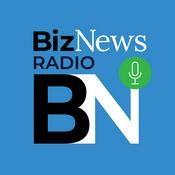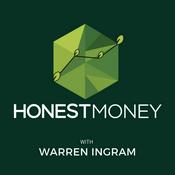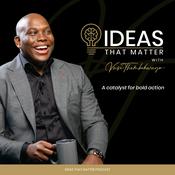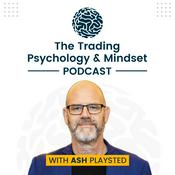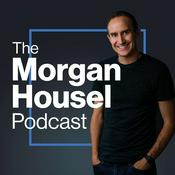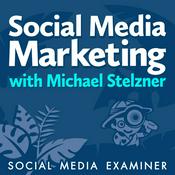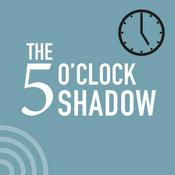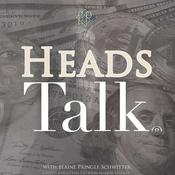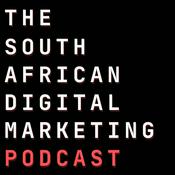112 episodes

The Human Safety Net, with Daniel & Renee Mercado and David Giannetto
2025/11/23 | 27 mins.
In this powerful episode of The Fix, we dive deep into the human side of business. Host Derek Maines is joined by David Giannetto of Felix Construction and Daniel & Renee Mercado of Resource Employee Care to discuss a critical but often overlooked aspect of leadership: proactive employee care. Discover how providing on-site, confidential support for personal crises—from marital issues and financial stress to suicide prevention—is not just "fluffy people stuff," but a crucial risk management and retention strategy. Learn why the standard 1-800 EAP number often fails and how having a trusted, familiar face on the job site can save lives, improve safety, and transform your company culture. In this episode, you'll learn: -Why personal crises are a business problem that directly impact safety and productivity. -The sobering statistic: with 400 employees, you likely have 20 people in crisis on any given morning. -Real-world stories of intervention, including marital restoration and responding to a workplace suicide. -How confidential, on-site care serves as an extension of leadership, building trust and a caring culture. -The tangible ROI of employee care in dangerous industries like construction, where a distracted worker can be a fatal risk. -Practical steps for implementing a care program that goes beyond a benefits pamphlet. If you are a leader, HR professional, or business owner in construction, manufacturing, or any high-stakes industry, this conversation is a wake-up call to the power of human-centric leadership. Mentioned in this episode: Resource Employee Care: RECArizona.com Connect with Us: Subscribe to The Fix for more conversations on building better businesses. Have you implemented a similar program? Share your story in the comments below! Chapters: 0:00 - Introducing a New Model for Employee Care 1:20 - Daniel's Inspiration: Serving People in Construction 3:25 - How On-Site "Rounds" Build Trust 5:10 - Being an Extension of Leadership's Care 8:59 - Scaling Culture from 20 to 400 Employees 10:22 - The Failure of the 1-800 Number 13:42 - Powerful Testimonials: Saving Marriages & Lives 19:13 - The Business Case for Proactive Care 24:56 - Confidentiality and Integration into Leadership 27:04 - The Final Word: Supporting Your Calling Keywords: Employee Care, Mental Health in Construction, Employee Retention, Company Culture, Leadership, HR Strategy, Risk Management, Workplace Safety, Suicide Prevention, Crisis Counseling, Proactive Support, David Giannetto, Daniel Mercado, Renee Mercado, Felix Construction, Resource Employee Care, The Fix Podcast, Derek Maines, Human Resources, Employee Assistance Program, EAP, People Operations, Caring Culture, Workforce Management, Phoenix Construction, Spanish Speaking Support.

Embrace the Dark, with Camille Cortina
2025/11/15 | 36 mins.
Is your business—and your mind—running too many apps at once? In this mind-expanding episode of The Fix, host Derek Maines sits down with systems thinker and integration specialist Camille Cortina. They dive deep into why modern businesses are broken and how systems thinking is the critical skill needed to fix them. Camille shares her journey from fintech client retention to leadership, sales, and building entire business processes from the ground up. But the conversation doesn't stop there. We explore the frontiers of high performance, including the transformative power of darkness retreats as a tool for executive nervous system regulation and self-mastery. This episode also tackles the controversial rise of executive psychedelics (microdosing, ayahuasca, DMT) on the West Coast. We ask the critical question: are these substances a shortcut to enlightenment, and what is the missing piece of integration? Discover how to achieve a "psychedelic" expansion of consciousness without drugs and why your personal baggage is directly linked to your business bottlenecks. In this episode, you'll learn: What "systems thinking" really means and why it's a superpower in the age of AI and remote work.How the concept of "defragging" your computer applies directly to your business and your mind.An inside look at darkness retreats: what happens when you sit in complete silence and darkness for days, and how it can reboot your nervous system.The truth about the psychedelics movement in executive circles (psilocybin, DMT, LSD) and the critical importance of post-experience integration.Why personal development and self-mastery are non-negotiable for effective leadership and building a successful business.How Source Code and other modalities can help you resolve subconscious patterns and self-sabotage. If you're a leader, entrepreneur, or visionary feeling the friction of a misaligned business or a cluttered mind, this conversation is your first step toward clarity, expansion, and creating a better world. Mentioned in this episode: Camille's Company: Rooted Viz (https://www.rootedviz.com)Inner Bloom Dark Retreat: The only darkness retreat in Prescott, Arizona. Connect with Us: Subscribe to The Fix for more conversations on fixing broken systems.Leave a comment below! What are your thoughts on executive psychedelics or darkness retreats? Chapters: 0:00 - Meet a Young Systems Thinker 1:29 - Camille's Career Journey 4:10 - Inboxes, Outboxes, & Managing by Wandering Around 6:28 - The Enlightenment: Quitting Your Job 9:26 - Self-Mastery as a System 11:04 - Source Code & The Subconscious 12:36 - Inside a Darkness Retreat 17:00 - Defragging Your Human Operating System 20:12 - Psychedelics in the Boardroom 25:09 - Redefining the "Psychedelic Experience" 30:59 - The Systemic Taboo of Consciousness 34:10 - How to Work with Camille Keywords: Systems Thinking, Business Systems, Process Mapping, The Fix Podcast, Derek Maines, Camille Cortina, Rooted Viz, Darkness Retreat, Sensory Deprivation, Nervous System Regulation, Executive Coaching, Leadership Development, Psychedelics, Microdosing, Ayahuasca, DMT, Psilocybin, Executive Psychedelics, Integration, Source Code, Subconscious Mind, Self-Mastery, Personal Development, High Performance, Business Bottlenecks, Remote Work, Defrag, Mental Clarity, Inner Work, Entrepreneurship, Corporate Training, Fintech, Sales Leadership.

The "Duh" Leadership Secret: The CEO's Guide to Unlocking Your Team's Genius
2025/11/01 | 30 mins.
What if the secret to turning around a failing business wasn't a complex strategy, but simply asking the right questions? In this episode of The Fix, host Derrick Mains sits down with his longtime friend and fellow entrepreneur, Paul Sim, for a masterclass in practical leadership and operational wisdom. Paul shares the incredible story of how, with no operations experience, he saved a firetruck manufacturing plant from closure just by going to the shop floor and asking the workers, "How do we make this better?" This conversation is a goldmine for any leader feeling disconnected from their team or trapped by corporate bureaucracy. You'll Discover: The "Lead-duship" Principle: Why the best ideas often come from the people doing the work, not the C-suite. Paul's 3 Core Business Sciences: A simple framework (Revenue, System, and Guidance Science) to diagnose any company's health. How to Justify Major Investments: The art of presenting ROI to get critical projects approved, even when you have to ask for forgiveness later. The Future of Work & AI: A provocative discussion on whether "Human Resources" is becoming "System Resources" and how to use AI without driving your business toward the "average." Real-World Lessons: Candid stories from 30 years of entrepreneurship on learning from failure and the value of a trusted peer who asks the tough questions. If you're a CEO, founder, or operations leader looking for no-nonsense strategies to improve communication, unlock hidden capacity, and future-proof your business, this episode is for you. Keywords: business turnaround, operational efficiency, leadership, entrepreneurship, process improvement, corporate culture, AI in business, future of work, CEO advice, business strategy, team management, employee engagement, operational leadership, Derrick Mains, Paul Sim, The Fix, GapView, business consulting, ROI, investment, systems thinking.

You Can't Spell ERP Without Teddie, with Teddie Reyes
2025/10/21 | 32 mins.
Is your ERP a liability or your greatest asset? In this episode of The Fix, host Derrick Mains sits down with Teddie Reyes, NetSuite expert and founder of TFR Solutions, to expose the shocking reasons why up to 90% of ERP implementations fail—and how to ensure yours is a success. They dive deep into the critical connection between clean process design, ERP configuration, and your company's ultimate sale value. Discover why "customization" can be a dirty word and how speaking the "common language" of systems like NetSuite can dramatically increase your business's transferability and multiple. In this episode, you'll learn: -The #1 reason ERP implementations fail (it's not the software). -How to perform "Process Triage" before an implementation to identify and fix workflow bottlenecks. -Why "tribal knowledge" is your biggest risk and how to systemize it for scalability and a successful exit. -The "Shipping Container" analogy for building a business that is easy to understand, operate, and sell. -The future of work in the age of AI and why "Human Resources" is shifting to "System Resources." If you are a CEO, CFO, or operations leader considering NetSuite, struggling with a current implementation, or planning a future business exit, this conversation is a must-listen. Keywords: NetSuite, ERP Implementation, Business Process, Operational Due Diligence, Business Exit Strategy, Scaling a Business, Process Triage, NetSuite Consulting, Teddie Reyes, TFR Solutions, Derrick Mains, The Fix, Oracle NetSuite, SaaS, Workflow Automation, System Integration, Tribal Knowledge, Business Valuation, AI in Business.

Why Your Team Has "No Common Sense" (And How to Fix It), with Layla Pomper
2025/10/15 | 39 mins.
Struggling to bridge the gap between your business strategy and your team's daily execution? In this episode of The Fix, host Derrick Mains sits down with Layla Pomper from Process Driven for a masterclass in operational efficiency. They break down the critical difference between high-level process mapping and the daily "playbook" that makes a team actually work. If you've ever been frustrated by disorganization, missed deadlines, or employees who seem to have "no common sense," this conversation reveals the root cause and provides a clear path forward. In this episode, you'll discover: The "MapQuest" vs. "State Map" analogy for understanding Process Mapping (strategic) vs. Process Execution (tactical).Why the first 90 days of an employee's journey often kills their creativity and how to fix it.How to move from chaotic email chains to a structured work management system that everyone follows.The real reason managers are incentivized to create busywork and how to flip the script to reward efficiency.Practical steps to implement "habit optimization" for your team, moving from theory to daily practice. If you're a business owner, COO, operations manager, or team leader tired of the friction between departments and the chaos of daily tasks, this episode is your guide to creating a cohesive, productive, and accountable organization. Keywords: business process, operations management, team productivity, workflow optimization, SOPs, task management, business execution, process mapping, Derrick Mains, Layla Pomper, Process Driven, The Fix, operational efficiency, team collaboration, project management, leadership, business systems, habit optimization, common sense in business.
More Business podcasts
Trending Business podcasts
About The Fix, with Derrick Mains
Listen to The Fix, with Derrick Mains, Build with Leila Hormozi and many other podcasts from around the world with the radio.net app
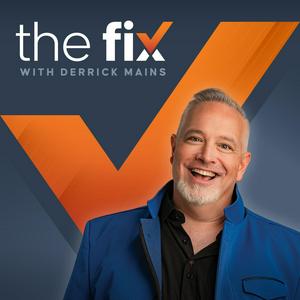
Get the free radio.net app
- Stations and podcasts to bookmark
- Stream via Wi-Fi or Bluetooth
- Supports Carplay & Android Auto
- Many other app features
Get the free radio.net app
- Stations and podcasts to bookmark
- Stream via Wi-Fi or Bluetooth
- Supports Carplay & Android Auto
- Many other app features


The Fix, with Derrick Mains
download the app,
start listening.



